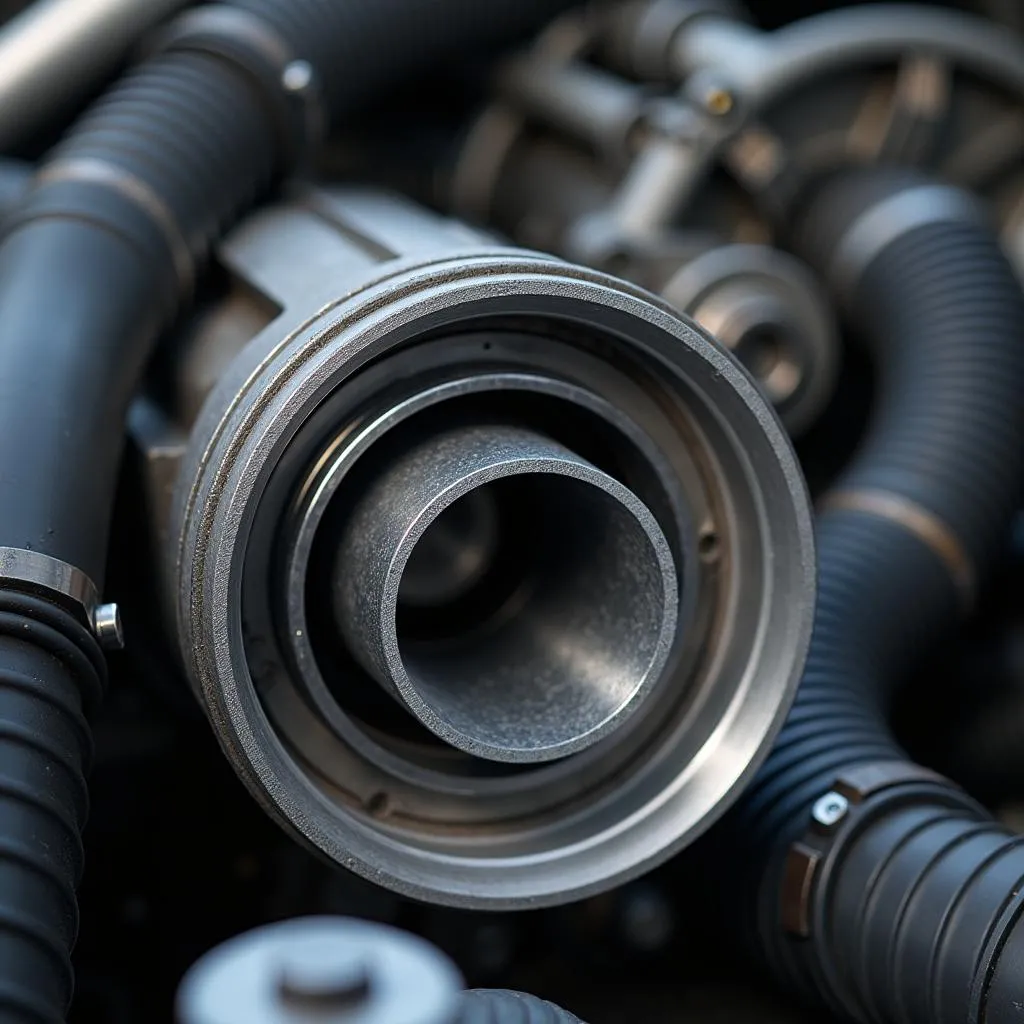The term “diesel engine compression” might sound technical at first, but it holds a crucial secret for the performance and longevity of your diesel engine. Imagine your engine is like a strong athlete – and compression is its heart.
 Diagram illustrating diesel engine compression
Diagram illustrating diesel engine compression
What Does Compression Mean in a Diesel Engine?
Simply put, compression describes the pressure built up in the combustion chamber of the diesel engine just before the fuel is injected. This pressure is created by the upward-moving piston compressing the air drawn in. The higher this pressure, the more efficiently the fuel can be combusted and converted into kinetic energy.
But why is compression so crucial? Imagine trying to light a campfire with damp wood. You’ll struggle to produce a strong flame. It’s similar with a diesel engine with low compression. Fuel combustion is inadequate, leading to power loss, increased emissions, and in the worst case, even engine damage.
Causes of Compression Loss
Compression loss can have various causes, ranging from harmless to severe. Common reasons include:
- Worn Piston Rings: These rings seal the combustion chamber. If they are worn, air can escape, reducing compression.
- Leaky Valves: Similar to piston rings, leaky valves can also lead to a pressure drop in the combustion chamber.
- Defective Cylinder Head Gasket: A defective cylinder head gasket can cause combustion gases to enter the cooling system, which also impairs compression.
How to Recognize Compression Loss
Compression loss manifests through various symptoms that you should not ignore. These include:
- Starting Difficulties: The engine is hard to start, especially in cold weather.
- Power Loss: The engine feels weak and accelerates slowly.
- Unusual Noises: Knocking or rattling sounds from the engine bay can indicate a compression problem.
- Increased Oil Consumption: Rising oil consumption can also be an indicator of worn piston rings and thus compression loss.
 Tool for performing a diesel engine compression test
Tool for performing a diesel engine compression test
Compression Test: The Key to Diagnosis
To clearly diagnose compression loss, a compression test is essential. This test measures the pressure in the combustion chamber of each cylinder. The measurement results provide information about the engine’s condition and allow the cause of the problem to be narrowed down.
“A timely compression test can save you expensive repairs,” explains Dr. Ing. Hans Müller, engine expert and author of the book “The Healthy Diesel Engine”. “Even slight deviations from the target value can indicate beginning problems that can be fixed early.”
Conclusion: Regular Checks Protect Your Engine
Compression is the heart of every diesel engine. Compression loss can have severe consequences and lead to costly repairs. Therefore, pay attention to the symptoms mentioned above and have your engine’s compression checked regularly to avoid major damage and extend your engine’s lifespan.
Do you need support with diagnosing or repairing your diesel engine? Our experts are happy to assist you. Contact us today!
